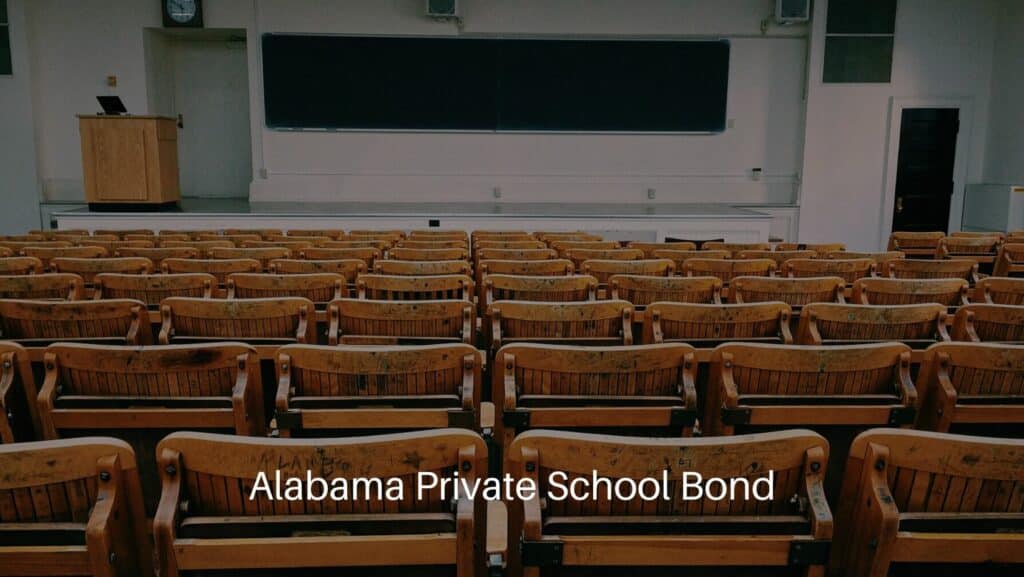
Get An Instant Quote on Alabama Private School Bond
| Alabama Private School Bond-Degree Granting ($50,000) | 
|
| Alabama Private School Bond-Non-Degree Granting ($20,000) | 
|
In Alabama, private schools play a significant role in the education landscape, offering families an alternative to public education. To maintain quality facilities and ensure financial stability, many private schools opt to secure bonds. But what exactly are Alabama private school bonds, and how do they work? Let’s delve into the details.
Alabama private school bonds are financial instruments designed to provide assurance to investors and lenders that private schools will fulfill their financial obligations. These bonds serve as a form of debt financing, where the school borrows money from investors or financial institutions to fund various projects, such as constructing new facilities, renovating existing buildings, or purchasing equipment.
While the primary purpose of private school bonds is typically to fund construction, renovations, or equipment purchases, some private schools may explore innovative uses for bond proceeds. These could include investments in technology infrastructure, sustainability initiatives, or specialized educational programs. However, any unconventional use of bond funds would need to align with the school’s overall mission and comply with regulatory requirements governing bond usage.
In addition to traditional tax-exempt status for certain bonds, Alabama private school bonds may sometimes come with specific incentives designed to attract investors. These could include perks such as priority access to school events or facilities, recognition in school publications or signage, or opportunities for involvement in educational programs or initiatives. While not all bonds may offer such incentives, investors should inquire with the issuing institution or bond underwriter about any potential benefits available.
While private school bonds in Alabama are subject to the same basic regulatory framework as other municipal bonds, there may be specific provisions or considerations unique to the private school sector. For example, private schools may need to demonstrate compliance with accreditation standards or provide additional financial disclosures to investors. Additionally, the use of tax-exempt bond proceeds by private schools may be subject to scrutiny to ensure compliance with applicable IRS regulations. Investors and issuing institutions should be aware of any sector-specific regulations or requirements that may impact the issuance and management of private school bonds in Alabama.
Axcess Surety is the premier provider of surety bonds nationally. We work individuals and businesses across the country to provide the best surety bond programs at the best price.